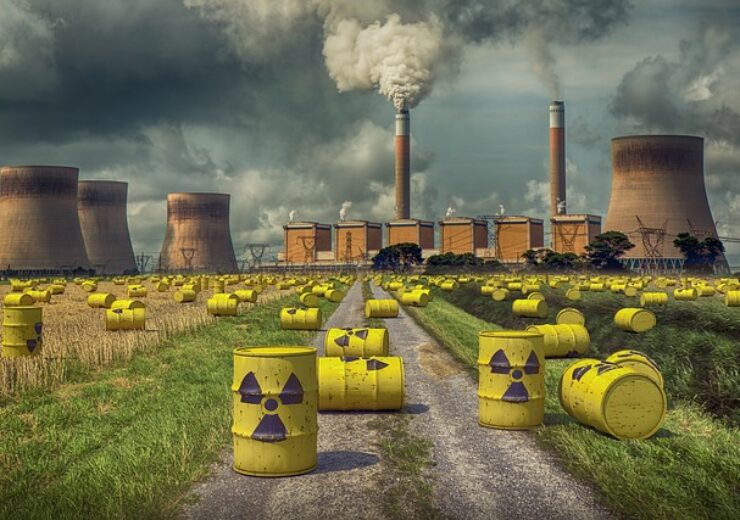It seems counterintuitive but decommissioning has a critical role to play in the future of the nuclear energy industry, writes Tom Eastup, a nuclear expert at PA Consulting

(Credit: Enrique from Pixabay)
The international nuclear industry is at its most pivotal moment for half a century. The global awakening to the threat of climate change has led to many of the world’s governments and societies embracing the energy transition. This has been accompanied by post-pandemic gas price volatility, the Ukraine crisis, and the ambition of many countries to electrify transport networks.
All of this creates the perfect environment for the nuclear energy sector to step in to play its part in the modern electricity landscape. Yet to make that happen we must be able to demonstrate our ability to manage decommissioning and waste management efficiently and effectively.
Nuclear Decommissioning: At the vanguard of transforming the global nuclear energy sector?
Investing in new nuclear power projects is different to other large infrastructure projects in that typically there are greater technical complexities as well as political and regulatory risks. There are also high fixed to variable cost ratios and liabilities related to waste management and decommissioning.
When new nuclear power stations are being considered (whether at Gigawatt scale or Small Modular Reactors), uncertainty about the costs of that decommissioning is a problem for investors and their lack of confidence risks delaying projects. It is vital that the global nuclear decommissioning sector shows how it can decommission facilities safely and reduce uncertainty about the scale of these liabilities for new build projects.
This means nuclear decommissioning, until now the less publicised end of the nuclear value chain, needs to be in the vanguard of transforming the entire industry. In the UK, for example, the nuclear decommissioning sector is being asked to do more. It is on the verge of the largest change since the creation of the Nuclear Decommissioning Authority (NDA). In June 2021 the UK Government reached a deal with EDF Energy to pave the way for optimised decommissioning arrangements, drawing on the extensive decommissioning expertise within the NDA. It was a logical choice to give such a complex technical and programmatic undertaking to those who know how best to do it and to those who are proactive in sharing and learning best practice with other world leaders in decommissioning.
How to rejuvenate an entire sector? Learn, adapt and thrive…
What is clear though is that decommissioning needs to be part of a wider focus on improving ways of working across the sector. This will need the involvement of governments, regulators, developers, financiers, site license companies and the supply chain, both UK and internationally, to work together and span the entire value chain from decommissioning and waste management all the way up to fuel production.
In addition, the economic and fiscal environment will force public and private organisations across the sector to do more with less. This will require new approaches – all of which require complex change, innovation and collaboration. And all this needs to be done whilst these nuclear organisations continue to build, maintain, and operate critical national infrastructure in a safe, efficient, and effective manner.
What is needed is a focus from all stakeholders on taking the steps to enable nuclear to play a full role in meeting future energy needs. This is particularly true of nuclear decommissioning sector, which too often is seen as the forgotten ‘back end’ of the asset lifecycle, rather than the key enabler of the investment to make new projects happen.
How can nuclear play a full role in meeting future energy needs?
Organisations – regardless of geographical location – need to adopt agile delivery and change approaches. Deploying an adaptive approach that builds on the strengths of the nuclear sector – moving from Learning from Experience processes to ‘Learn Fast’ mindset – will allow organisations to quickly implement changes that make an impact, to deliver value early and reduce the likelihood of costly ‘big bang’ transformation programmes that don’t deliver.
Within decommissioning projects it will be important to prioritise ‘Time to Value’. That means delivering benefits such as reduced risk, increased social value or skills development that have a meaningful, positive impact early in a programme. This helps to build momentum and instil confidence that the longer-term outcomes will be achieved.
Regardless of where a nuclear organisation is operating in the world, there is no escaping the need to acknowledge the challenge of delivering complex change in a safety-focused, regulated and unionised environment.
Decommissioning projects should focus on securing the right skills from the existing workforce, and creating a safe environment for them to test, refine and implement decommissioning best practice and establishing new capabilities whilst sustaining reliable and high-performing safe operations.
By implementing this kind of change in approach across the sector, it will be possible to provide more certainty over the costs and approach to decommissioning. That will then give investors the confidence to support new projects and ensure nuclear plays its part in meeting our future energy needs.
This article first appeared in Nuclear Engineering International magazine.
